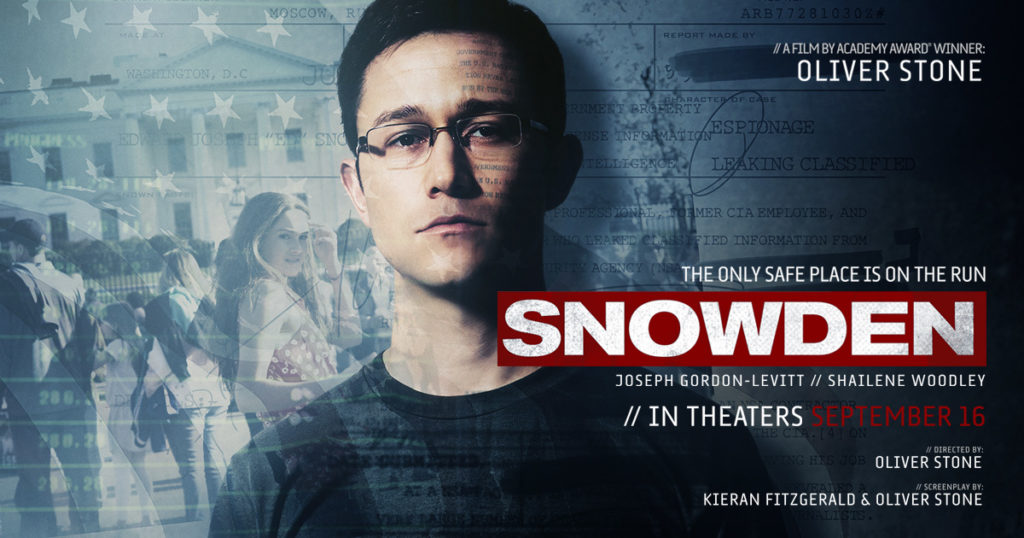Snowden chronicles the life, decisions, and mystery of former American CIA operative, Edward Snowden, played by Joseph Gordon-Levitt. In this movie, Director Oliver Stone tells this complicated story through a series of flashbacks, and flash-forwards.
When watching Snowden, there are two different movies within the one. Clocking in at a lengthy 134 minutes, one can expect some dissonance between where the movie starts, and where it ends. The first half is a strange display of American propaganda disguised as flashy CIA hiring tactics. Such instances include shots of Snowden taking a lie detector test and being asked questions like, “Is America the best country in the world?”
In addition, the language and content in the first half comes off as both imperialistic and xenophobic. Perhaps an instance that highlights this the most is an uncomfortable scene of a woman removing her burqa. In this long, slow scene, the woman is stripping all the way down to her lacy underwear, and there is a computer in the room that could allow people to watch her as she—unaware of the audience—undresses. While the scene may have been there to exemplify the atrocity of this, it felt like the film was fetishizing a people they’d already labeled as threats to America earlier in the film.
The second half, however, might be the only reason to watch the movie. Although the details of the excitement are convoluted by jargon less accessible to the average American, the film does a great job of creating tension, suspense, and risk.
It was a refreshing turn-around to see the character Snowden speak of the United States and their security breaches for what they really were, as opposed to blindly supporting American security tactics under the guise of his agency loyalty.
It is during the second half that you can sense the intentional change of tone created by the director, aware of the duality he created in the beginning with the over patriotism and fear mongering tactics. This change of tone really contributes to a sense of honesty and legitimacy for Snowden. This is a great decision by the director because in many senses, the United States abused their security powers, as highlighted in the movie.
What distracts the viewer the most from the plot of the movie though is the comical depictions of government operated intel facilities. Clichéd dark rooms, full of giant screens, only lit by the dim blue glow of computers, almost every place Snowden visits as a CIA operative is over the top with stereotypical, futuristic tropes. While it is possible the insides of these buildings in fact look like how they were shown, the film’s setting looks more like the leftover set of a cheesy spy movie. This is tragic, given Joseph Gordon-Levitt did an incredible job preparing for this role and getting to know his character. Similar to Gordon-Levitt, Shailene Woodley’s impressive performance is also dwarfed by the over-dramatization of American secret services.
Even with a surprisingly star-studded cast, the movie didn’t lend itself to believable. This can be seen by the boisterous cameo by actor Nicholas Cage, which more or less depleted the anonymity one may have hoped for a film about government secrets.
Overall, the movie was interesting, but in all honesty, the actual facts and events that took place back in 2013 and earlier are probably more interesting. If you want to understand this scandal, Snowden’s role in it, and why his breach of conduct was important, I wouldn’t recommend this movie. However, if you want to fantasize about what a high-profile jobs and security clearance looks like, Snowden is an interesting romp through a sector of government few have seen. At the end of the day, Joseph Gordon-Levitt does a great job encapsulating Edward Snowden as the nerd you probably expected him to be, while still maintaining the independence and spirit of a character that would be dubbed both a hero and a traitor to his country.
Madeline may be reached at
mmesa@su-spectator.com









